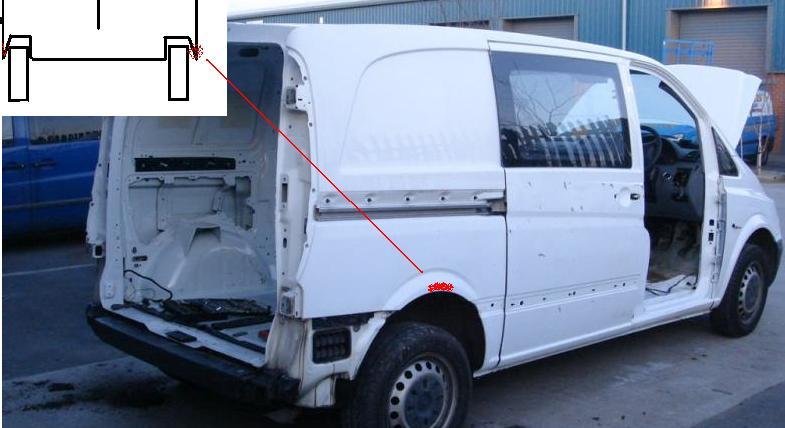Good Day,
As I am new on the eng-tips.com , I'd like to present myself as someone who try to do research and find experts concerned answers to my questions about sealing iron corrosion. The target is to learn how to deal with the rust on my own car (Vito VAN) and perhaps to others.
Many times, on car forum/rust debates, some claim that once the iron rust attacked is impossible to stop it, sometimes comparing it with cancer which in my opinion is improper. As cancer is a complicate DNA "malfunction" , I believe that iron corrosion is just an oxidation process who take place in the presence of both water and oxygen according to Wikipedia.
In my case, the corrosion begin from interior to exterior of the car, especially to the wheel arches where maybe water condense or perhaps rain it went through outside rims clips.
But, as I've found almost impossible to clean interior side of rust, I'm looking to find a way in sealing it from oxygen and water. For this, I did some research in sealing old art pieces rust patina where some recommend using linseed oil combined with wax or just simple linseed oil.
Of course, there are some other phosphoric acid based treatments who convert the rust, but I find them not trustful as long I know that they won't seal the rust but just lengthen the oxidation process.
My auto tinkers who will prepare in the next days to repair the outside of the car (wheel arches) told me that from his experience will not keep longer more than three months as the interior rust will crack again to outside.
So, I became to do research in battle with rust by sealing it. For this, I think I need expert advices not from car forums ,but from engineers.
I do believe it is possible to seal rust forever by sealing it, but I must know how to proceed.
Thank You!
As I am new on the eng-tips.com , I'd like to present myself as someone who try to do research and find experts concerned answers to my questions about sealing iron corrosion. The target is to learn how to deal with the rust on my own car (Vito VAN) and perhaps to others.
Many times, on car forum/rust debates, some claim that once the iron rust attacked is impossible to stop it, sometimes comparing it with cancer which in my opinion is improper. As cancer is a complicate DNA "malfunction" , I believe that iron corrosion is just an oxidation process who take place in the presence of both water and oxygen according to Wikipedia.
In my case, the corrosion begin from interior to exterior of the car, especially to the wheel arches where maybe water condense or perhaps rain it went through outside rims clips.
But, as I've found almost impossible to clean interior side of rust, I'm looking to find a way in sealing it from oxygen and water. For this, I did some research in sealing old art pieces rust patina where some recommend using linseed oil combined with wax or just simple linseed oil.
Of course, there are some other phosphoric acid based treatments who convert the rust, but I find them not trustful as long I know that they won't seal the rust but just lengthen the oxidation process.
My auto tinkers who will prepare in the next days to repair the outside of the car (wheel arches) told me that from his experience will not keep longer more than three months as the interior rust will crack again to outside.
So, I became to do research in battle with rust by sealing it. For this, I think I need expert advices not from car forums ,but from engineers.
I do believe it is possible to seal rust forever by sealing it, but I must know how to proceed.
Thank You!

